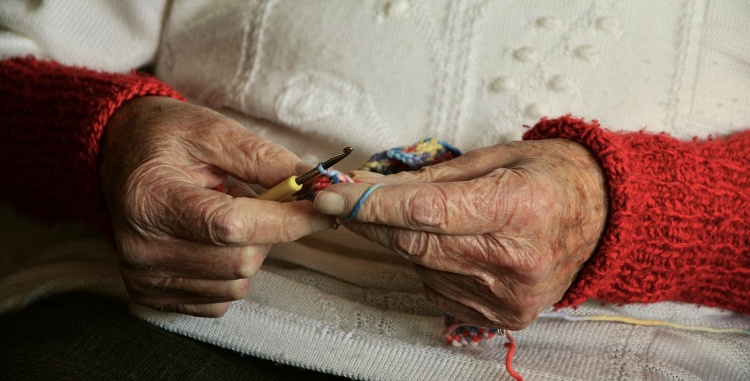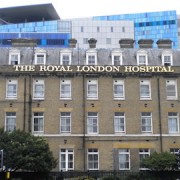
Croydon has suffered the fifth highest number of Covid-19 related care home deaths of the 32 London boroughs, as revealed by statistics recorded between April 10 and May 8 this year.
New figures published by the Office for National Statistics and the Care Quality Commission (CQC) on May 12 show that of the 121 care home deaths recorded in Croydon, 42 have been caused by coronavirus, equal with neighbouring borough, Bromley (42) .
A Croydon Council spokesman said: “Like people up and down the country, we have been saddened to hear of every local death from this pandemic, whether that’s in a care home, hospital or in the community”.
“Although Croydon has one of London’s biggest populations and number of care homes, the council, our NHS partners and providers are doing all we can to keep safe the vulnerable people in local care homes”.
The spokesman also said that although almost all of Croydon’s 123 care homes were privately run by independent businesses, the council had still been providing ongoing support including training on infection control, supplying them with personal protective equipment, offering financial support and monitoring daily all homes in the borough.
He said that the Government had this week given the council responsibility for getting care homes tested for the virus and so they are now writing to local care providers urging them to test anyone who has not already been tested.

Kate Terroni, Chief Inspector of Adult Social Care at the CQC said that the organisation were also providing protective equipment to individual care homes as well as support and advice on infection control, using their inspector’s prior knowledge of care homes they had previously visited to guide them.
She said: “The nation is facing a major health crisis that has required all health and care bodies, including CQC, to work in very different ways, and we continue to do so. We have contacted care home managers to make clear that during this crisis our role will go beyond that of a traditional regulator – that we want to support them to keep people safe and try to make sure that they get the crucial help they need.”
The CQC said they also using data to produce and share regular information with local, regional and national system partners and the Department of Health and Social Care to highlight key trends and issues. This is to ensure they provide additional support where needed.
Terroni added: “We will be exploring further how organisations manage infection control and what support and resources they have to effectively control the spread of the virus. Those who work in social care have never had a more crucial – or a more challenging role to play. We are here to support them so they can continue to keep people safe during this global emergency.”
Another borough whose care homes have also been impacted heavily during this period is Tower Hamlets. Whilst the total number of Covid-19 related care home deaths is much lower than Croydon’s, with an overall number of 22, only 29 people have died in care homes in this period meaning that 76 per cent of all deaths have been caused by coronavirus.
Comparatively, Hackney is ranked as the borough with the least Covid-19 related care home deaths with three of eight deaths being caused by the virus in this period.
Meanwhile, Lewisham ranks at number 24 of the 32 boroughs, with 12 of their 40 care home deaths being Covid-19 related.
An article published by news magazine New Statesman shows that these statistics contribute to a national figure that now indicates that 40 percent of all virus related deaths in the UK have actually occurred in care homes.
These statistics come at a time when questions are beginning to mount for Prime Minister Boris Johnson. On Wednesday he was challenged on the guidance the Government had issued to care homes in relation to Covid-19 by the Labour Leader Sir Keir Starmer during a Prime Minister Questions session being held in Parliament.
Sue Mackay, a specialist nurse advisor and a care home inspector until 2011, said that one of the main problems in care homes that may have made this infection harder to control, resulting in a high number of coronavirus related deaths is that many care homes are registered as being a dual functionality facility.
Mackay, who lives in Cambridge added: “Some are registered as nursing homes and others are registered as nursing homes and residential homes, so you get a cross match of people and groups. If you’ve got a dual registration of patients in the area for residential care, they can walk about and go into shops. So, I suppose to some extent you could say if it’s dual registered, they could have picked up the infection elsewhere and brought it in. The nursing area is probably staffed by the same people and so you can get cross infection that way.”
Mackay said that care buildings are subjected to high levels of inspection and that there is a standard they are expected to adhere to. However, she said that there needs to be a bigger implementation of training for staff in the care home system that might help improve knowledge of infection control.
She said: “There are still lots and lots of wonderful people working in the care home sector that really do care and are very conscientious and well trained, but you do get some that aren’t. I think that matrons and a lot of people that run these homes are so wanting of people and staff that they will take them in with little or no training. There’s a big education thing going on at the moment. In the homes themselves they do have training, they need some [people] that are more qualified in charge of these residential homes. They’re all managers now, they’re not nurses.”
EastLondonLines also reported that figures produced by the Office for National Statistics showed that care workers and home carers had also suffered significantly because of coronavirus as that occupation has registered the most deaths nationally as a result of the virus.
Figures show that of people aged between 20 and 64, living in England and Wales and working in that industry, nearly 25 percent of the 402 fatalities have been Covid-19 related.




